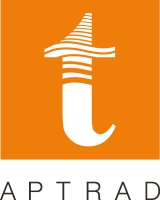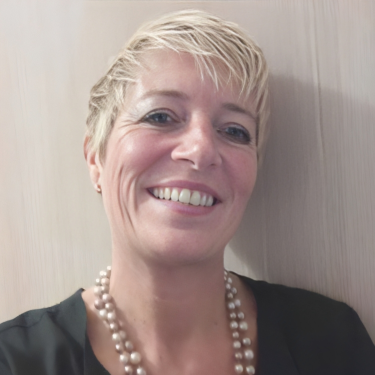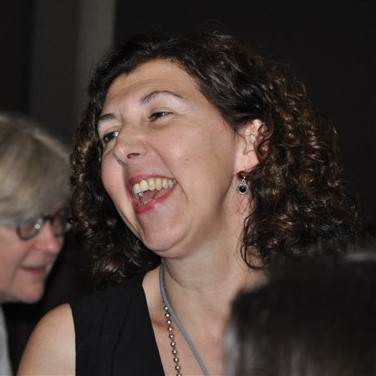Tradutores e Intérpretes pelo Mundo – Daniela Zambrini

O reconhecimento da nossa profissão e dos seus profissionais
19/04/2023
Tradutores e Intérpretes pelo Mundo – Teresa Cruz
19/07/2023Daniela Zambrini is an Italian-Irish translator and technical author, specialised in translation and technical writing from Italian to English and vice versa. We talked to her about some of the aspects of her career in Italy, the importance of associations, and she gave some advice for the new generation of professionals.
APTRAD: Tell us a little bit about yourself, how you started out in this career, and what made you choose it.
I grew up in a bilingual family, my father was Italian, and my mother is Irish. I like to think that, apart from having both nationalities, I have merged the best parts of these seemingly different but in actual fact rather similar cultures. I focused my studies on foreign languages (Liceo Linguistico) and then I achieved my MA in Foreign Languages and Literature, with a thesis on Irish literature and poetry (Translation and Tradition in Douglas Hyde and Lady Gregory).
I actually stumbled upon translation by chance: I had recently started working for an airline (for which I worked from 1987 to 2017) and my next-door neighbour, who was a University Professor in International Space Law, asked me to translate her paper – from Italian into English- for a conference. The title of the paper was “The Legal status of the crew in the International Space Station”. Not your average first assigment! I dove right in at the deep end: it was “swim or sink”! We all know about the International Space Station today: we see pictures, streaming videos, we can follow its position in orbit at any time. But can you recall the days when there was no internet, no reference material except academic papers and hard-copy dictionaries? Do any of you remember typing out on an ancient word processor where you could only use bold, italics or underlined fonts if you put tags before and after the words or sentences (prehistoric HTML!) and had to save everything on a floppy – yes…it was literally “floppy” – disk? I was in my early twenties, and I guess the result must not have been too horrific as I got a repeat assignment for a few more years for the same conference. But I do think I would be pretty embarrassed to read these translations again today.
So, I can say that in some way translation chose me, and I found that I liked it. I realized that time flew when I was working and that each time I read my draft I could always find room for improvement. That’s when I was lucky to meet an experienced translator who became my mentor. She trusted me from the very start, and she assigned paid work which she would revise. She always gave me honest and detailed feedback. I believe that without her guidance I would not have been able to hone my skills.
My fields of specialisation merge my language and translation studies, my teamwork with the STEMG and my three decades of employment in the airline industry: I focus on aerospace and defences, logistics, and transport engineering.
APTRAD: How would you describe a “normal” day in your working life?
Now that is a very difficult question! Depending on the project or the timeline I can go into full-frenzy immersion mode or procrastinate until the adrenaline kicks in. I have, however, never missed a deadline. I am more of a night owl, so I tend to be more productive later in the day. I have often burned the midnight oil. In any case, I always begin with a good breakfast (I can skip lunch and dinner, but I definitely cannot start the day without my cappuccino!). Then I sort my emails and cross out things on my to-do list (these can range from watering the garden to grocery shopping or doing the laundry). More often than not, I can’t find the list and I start writing another one 😊 You see, my greatest struggle is being tidy. I have stacks of paper and notebooks everywhere. However, I do have failproof filing system in my PC. I guess that’s a start!
APTRAD: Are you a member of any professional association/organisation? If you are, what made you join it? If not, why haven’t you joined yet?
Yes, I am a member of the ITIA (Irish Translators’ and Interpreters’ Association) in honour of my Irish heritage. I am also a member of the ATA (American Translators Association). I believe in contributing to support our profession through the integrated work that these associations do on a political and academic level. I also strongly believe in continuing education. Professional organisations provide their associates with opportunities for conferences, events, training, networking, and involvement at regulated costs.
I am a firm believer in mentoring and continuing education, and I enjoy in-person events as speaker, organiser or attendee. I am also a member of COM&TEC, the Italian Association for Technical Communication and I recently joined the Society for Technical Communication.
APTRAD: From your experience, what makes a “good” professional in this area?
There is no one-size-fits-all approach because we all have different backgrounds and personalities. But one common trait that clearly stands out in all the excellent professionals I have had the honour to meet or work with is the ability to set aside time for continuing professional development. Self-paced learning is a good option because the required commitment can be adjusted around personal workload. On the other hand, it requires a high level of self-discipline. I think that the ideal solution is a balanced mix of in-person workshops and online courses.
APTRAD: What do you like the most and what do you like the least about your work?
I like the freedom to choose if a project suits me (in terms of topic and deadline) and I especially enjoy the freedom to work from anywhere around the world. I have had the luxury of translating from a balcony overlooking the Aegean Sea or to be working in front of a crackling fireplace in a mountain village while it was snowing outside.
The most critical aspect for freelancers is the “feast or famine” trend: there are times when I am overwhelmed with requests that I need to prioritize and then there can be some dry spells without assignments.
I will not dwell on the late payment issue. I have learned to stand my ground and be firm on my rates and payment terms from the onset. If the client does not agree, it’s a no-go. If the client does not respect the payment terms after delivery, I don’t give them a second chance. It saves a lot of heartburn.
APTRAD: What advice would you give someone who wants to become a translator and/or interpreter?
I would recommend learning about business practices, joining a professional association, attending in-person conferences and workshops, focusing on one or two closely related specialization fields, and if possible, finding a mentor or a peer for revision and feedback.
APTRAD: Is there anything else you’d like to share with our readers?
One of the best pieces of advice I ever received was to leave a translation to rest and decant overnight and to read it again the next day with fresh eyes. This has saved me more than once! Oh… and do your best to keep your desk and office tidy!
Thank you, Daniela, for answering our questions!
To know more about Daniela Zambrini, you can follow her LinkedIn [https://www.linkedin.com/in/daniela-zambrini-5217a87/].
Se quiser saber como se tornar um associado da APTRAD, consulte aqui [https://bit.ly/3eTVpK0] ou acompanhe as nossas redes sociais em Facebook [https://bit.ly/32Mrkde], Linkedin [https://bit.ly/3humLZe], no Twitter [https://bit.ly/30IZICW] ou no Instagram [https://bit.ly/3metM5R].
Biografia:
Daniela is an experienced and enthusiastic technical translator. Working as a freelancer for the last twenty years, she has gained extensive knowledge in select fields, specializing in the aerospace and defence industry, logistics, and engineering topics.
She enjoys both independent assignments and cooperative team-work. Her language combinations are IT-EN and EN-IT.
Daniela achieved her MA in Foreign Languages in 1992. In 2012 she returned to University and completed a Master in Specialised Translation. In 2014 she joined the ASD Simplified Technical English Maintenance Group (STEMG) as an Associate Member and is now an STE Certified Trainer. Together with the STEMG she contributed to the publication of Issues 7 and 8 of ASD-STE100 (International Specification for the Preparation of Technical Documentation in a Controlled Language).


